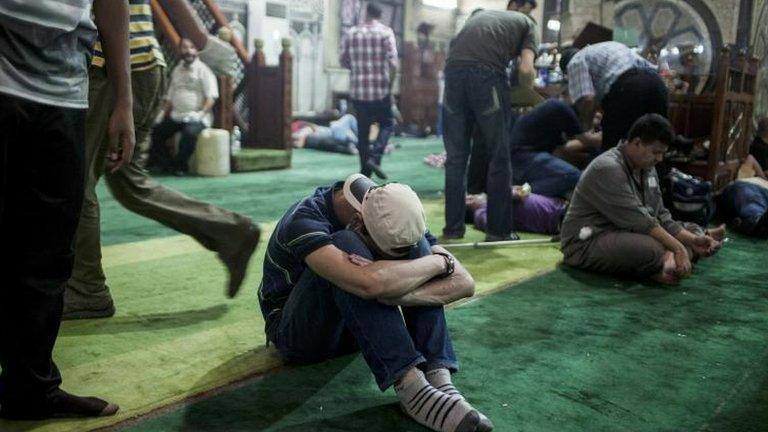Ibrahim Halawa: EU Parliament calls on Egypt to release Irish teen
- Published
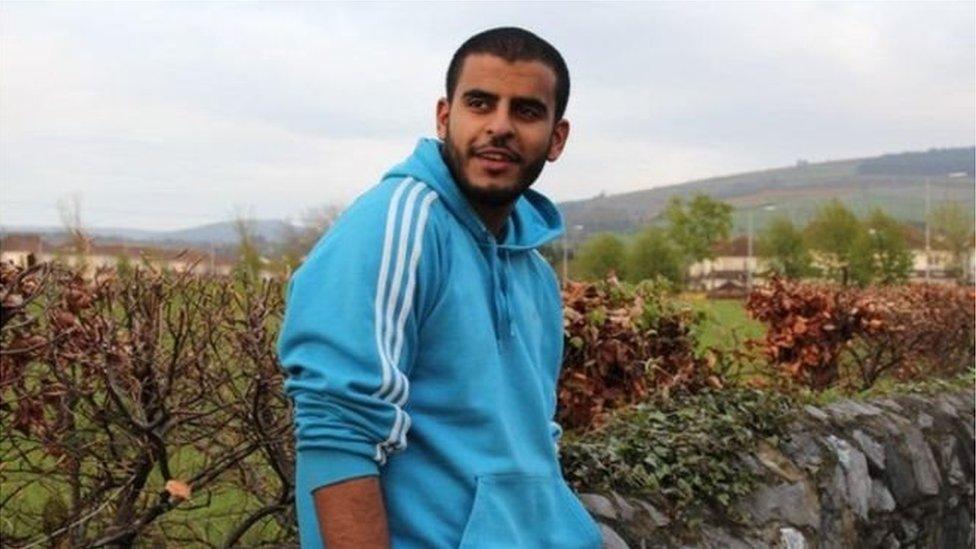
Mr Halawa has spent two and a half years in jail for allegedly participating in illegal protests during a family holiday to Cairo in 2013
The European Parliament has voted in favour of a resolution calling on the Egyptian Government to immediately release Irish prisoner Ibrahim Halawa.
More than 560 MEPs voted in favour of the resolution, compared with 11 against.
The motion was raised by Irish politicians criticising the Egyptian government's treatment of Mr Halawa.
He was arrested aged 17 during a siege on the Al-Fath mosque in Cairo in 2013, and could face the death penalty.
The possibility of a death sentence for Mr Halawa, who was a minor at the time of his arrest, was criticised by the resolution.
The motion said that capital punishment for a minor was a violation of international human rights law.
Allegations
Egyptian authorities alleged that Mr Halawa attended two illegal protests 16 and 17 August 2013 during a family holiday.
He has strongly denied the charges and said he was taking refuge from violent clashes between security forces and protestors in the Cairo mosque.
Now aged 20, Mr Halawa's trial was postponed for the tenth time on 15 December.
His case is being heard alongside 493 other defendants, a move that his legal counsel have said constitutes a violation of his human rights.
His next trial date is 19 December.

Key points from the EU Resolution
The European Parliament's resolution makes a number of criticisms of the Egyptian government's treatment of Mr Halawa. They include:
The Egyptian prosecutor's sole dependence on police witnesses and reports
The multiple postponements to Halawa's mass trial
The fact that he will be tried as a mass group, with 493 other individuals
The prison conditions
The Egyptian court's failure to treat Mr Halawa as a juvenile
The fact that Mr Halawa, a juvenile at the time of his arrest, could face the death penalty should he be convicted of the offence

Unacceptable
The European Parliament said it was deeply concerned about the "unacceptable breach of basic human rights."
Mr Halawa's solicitor said they were "delighted" at the European Parliament's move.
"The resolution signifies the context of Ibrahim's detention against the wider backdrop of human rights abuses in Egypt, and the continuing failure to uphold the very basic human rights enshrined in international law," he said.
Violations
Mr Halawa's legal team have raised concerns about his treatment during his time in custody, alleging that his human rights have been violated.
They maintain that he endured torture, inhumane treatment and was denied access to his legal counsel.
Mr Halawa was on a family holiday to Egypt when he and his three sisters were arrested during a crackdown on protestors in the country's capital.
His sisters were allowed to return to Dublin in November 2013.
- Published1 December 2015
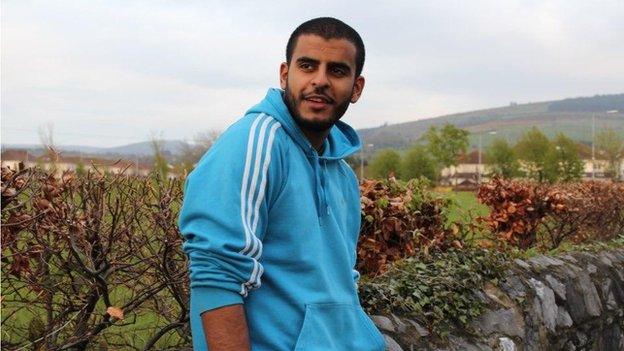
- Published4 October 2015

- Published2 August 2015

- Published3 June 2015

- Published30 March 2015
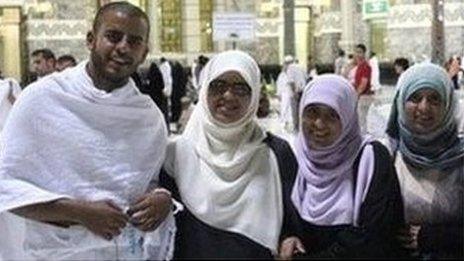
- Published8 February 2015
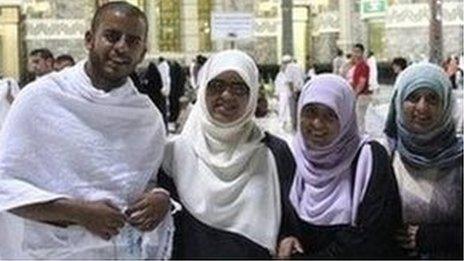
- Published5 February 2015

- Published17 August 2014
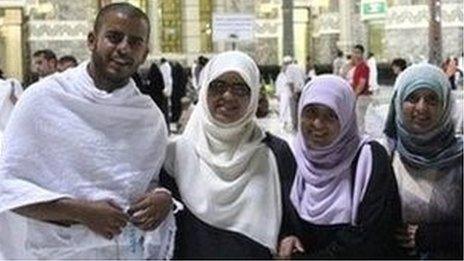
- Published17 August 2013
